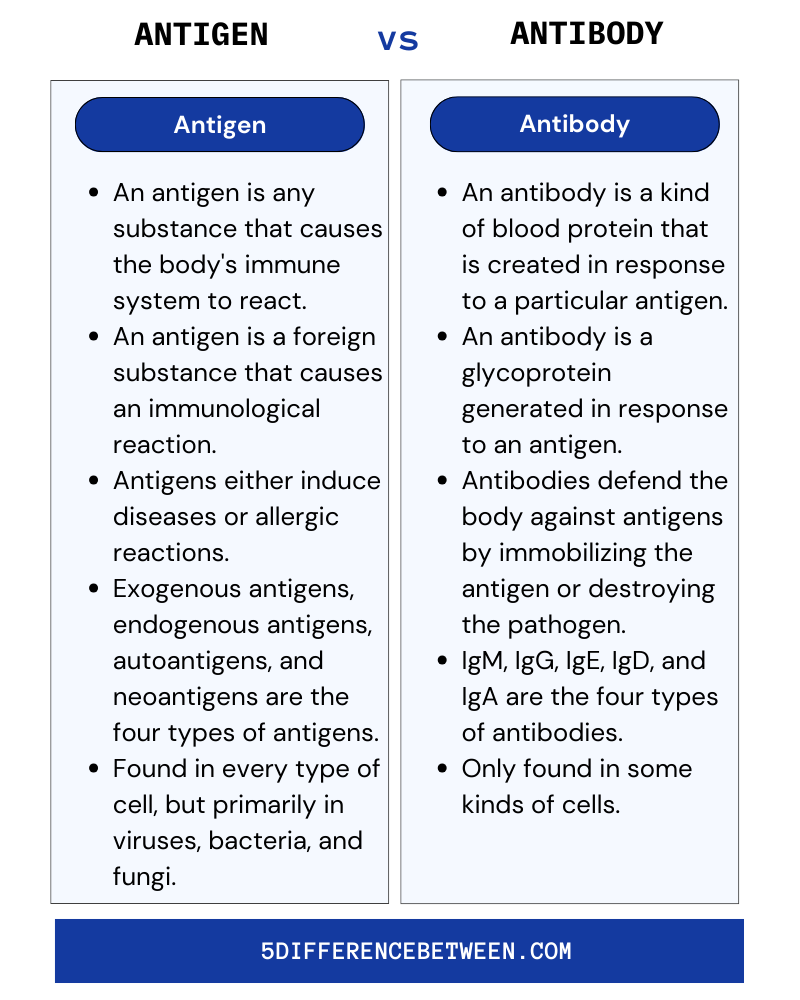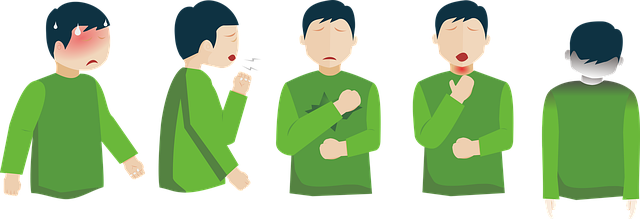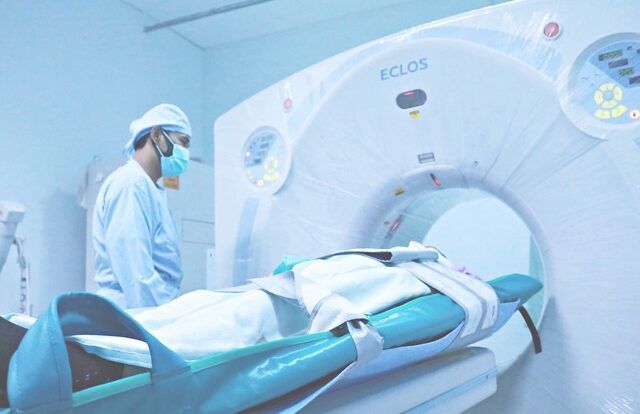In the field of immunology, “antigen” and “antibody” are two terms that tend to go together. The main difference between an antigen and an antibody is that an antigen is a substance that can cause an immune response in the body, whereas an antibody is a globin protein that the body makes in response to a particular antigen.
What is an Antigen?
An antigen is a substance that causes the body’s immune system to react. These substances are divided into two types: foreign antigens and autoantigens.
Foreign antigens include a wide range of substances derived from the outside environment. Pathogens, which are bacteria, viruses, or other microbes that cause disease, maybe the source of them. Foreign antigens may also include insect or snake venom, pollen, chemicals, or particular proteins present in certain meals. When these chemicals enter the body, the immune system recognizes them as “not-self” and initiates a defensive reaction to battle and eradicate them.
Also Read > Difference Between Signs and Symptoms
The body, on the other hand, produces autoantigens. Normally, the immune system recognizes these self-antigens as components of the body and does not generate an immunological reaction against them. However, in people with autoimmune illnesses, the immune system fails to distinguish between self-antigens and foreign antigens. As a result, the immune system erroneously attacks its tissues and cells, resulting in negative repercussions. In autoimmune disorders, the body produces autoantibodies, which are antibodies that target and attack self-antigens. This erroneous immune response harms many cells and tissues throughout the body. The amount of damage varies based on the autoimmune illness and the organs or systems affected.
What is an Antibody?
B cells, a type of white blood cell, play an important role in producing antibodies when the body comes into contact with an antigen, such as a virus or foreign substance. Each B cell has a different surface receptor that recognizes and binds to certain antigens. When a B cell is exposed to an antigen that binds to its receptors, it becomes activated and begins to multiply.
As the B cell grows, it undergoes a process called differentiation, in which it develops into plasma cells. Plasma cells are factories that produce a large number of specialized proteins with the intent to recognize and bind to antigens that the B cell encounters. These proteins are known as antibodies.
Antigen Vs Antibody

An immune response occurs when an antigen binds to an antibody or T-cell receptor. A different term for antigen is immunogen. Immunoglobulin (Ig) is another name for an antibody. An antibody is made up of two heavy protein chains and two light protein chains. This makes the whole molecule look like Y. The plasma cells in the blood make antibodies, which are very specific to a certain antigen.


